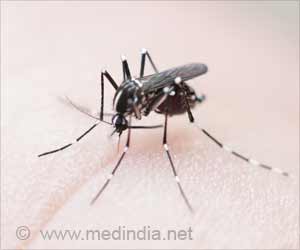Novel reliable, rapid and cheap antibody test that can measure the amount of antibodies produced by the immune system has been developed by researchers.

‘A rapid, reliable and cheap antibody testing which combines powerful light-sensing technology with a microfluidic chip can quantitatively measure the amount of COVID-19 antibodies produced by the immune system.’
Read More..




The device uses portable lab-on-a-chip technology to accurately measure the concentration of antibodies present in diluted blood plasma. Read More..
Antibodies are proteins produced by the immune system to neutralize the virus.
Antibody tests are an important means of determining the full spread of coronavirus as COVID-19 antibodies are present in the later stage of the infection and can also linger in the blood after the infection has cleared.
Existing antibody tests are reliable and accurate, but they are expensive, time-consuming and require trained operators for handling. The tests designed by the researchers are rapid, portable, but are not sufficiently accurate, which hampers testing efforts.
The researchers avoided this trade-off between accuracy and accessibility by developing an alternative antibody testing platform that combines powerful light-sensing technology with a microfluidic chip.
Advertisement
Another advantage of the newly developed platform is the fact that the test is a quantitative test which can provide information about the quantity of antibodies produced by the immune system.
Advertisement
Illuminating the antibodies
The antibody testing platform consists of a microfluidic chip integrated with a fiber optic light probe.
The chip is made from a gold-covered glass slide with an embedded microfluidic channel. Using an electric voltage, the team fabricated tens of thousands of tiny spiky gold structures, each one smaller than the wavelength of light, on a glass slide.
The chip was modified by attaching a fragment of the SARS-CoV-2 spike protein. This protein is crucial for helping the coronavirus infect cells and causes a strong reaction from an infected person’s immune system.
The principle of the test was demonstrated by using artificial human plasma spiked with COVID-19 antibodies that are specific to the spike protein.
A sample is drawn through the chip by using a syringe pump, and as the plasma flows, the antibodies bind to the spike protein fragments. The fiber optic light probe then detects this binding event.
The principle is based on the unique behavior of electrons on the surface of the gold nano spikes, which oscillate together when hit by light. These resonating electrons are highly sensitive to changes in the surrounding environment, such as the binding of antibodies, which causes a shift in the wavelength of light absorbed by the nanospikes.
The shift in the wavelength is larger when more antibodies bind. The fiber optic probe is connected to a light detector. It measures the shift, and the concentration of antibodies in the plasma sample can be determined.
A bright future
A quantitative test could help doctors observe how effectively a patient’s immune system responds to the virus. It could also be used to identify donors for plasma transfusion therapy, where a recovered patient’s antibody-rich blood is donated to currently infected patients to help them fight the virus.
Quantitative measurement of the immune response can also help vaccine development by determining how effectively a trial vaccine triggers the immune system.
However, the researchers emphasized that the device is still undergoing active development. The unit aims to reduce the chip size to cut manufacturing costs and is also working on improving the reliability of the test.
“We have shown that the device works to detect different concentrations of the spike protein antibody in artificial human plasma samples. We now want to expand the test so that the chip can detect multiple different antibodies at the same time,” said Dr. Funari.
“Once the device is optimized, we plan to collaborate with local hospitals and medical institutions to perform tests on real patient samples.”
Source-Medindia















